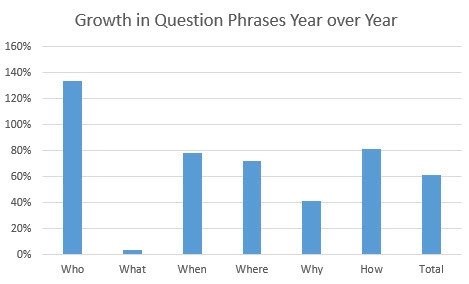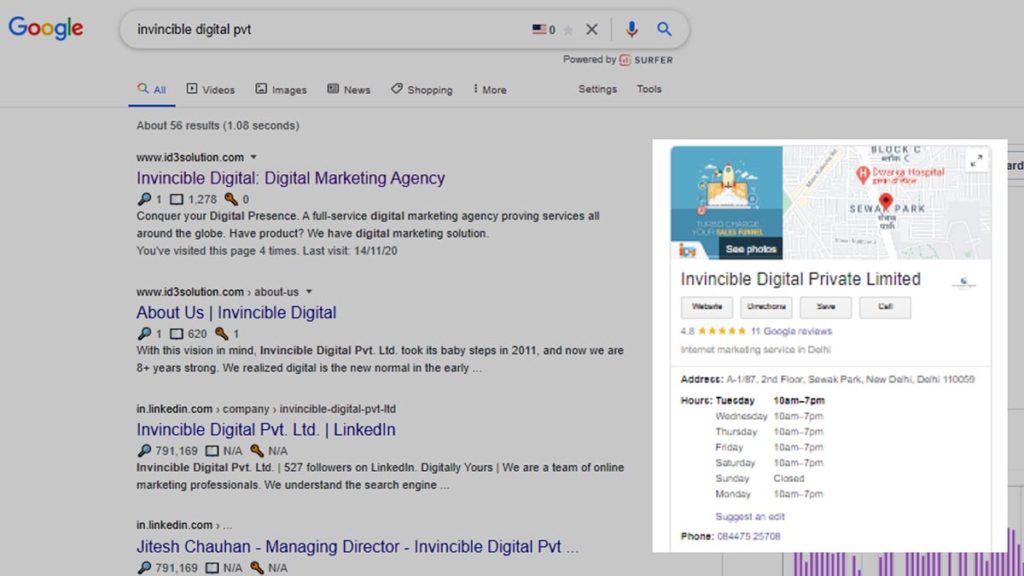Why Voice Search is the Present and The Future of SEO

SEO is all about providing the best answers to queries. And today, most of the questions are being asked to Google Assistant, SIRI, and Alexa. Online classes have given a meteoric rise to questions being asked through voice searches. The constant endeavor of providing the best answers has made voice search the hottest trend of SEO.
SEO is no longer limited to text content. From images to videos to now voice search, SEO is for every content available on the internet. Verbal searches are the next big thing for SEO experts all over the world. Majority of websites are not yet optimized for voice search. And here’s the opportunity for websites to beat their competitors with proactive voice search optimization.
Voice search is going strong and will become even more crucial for websites to get engagement and attract new users. Searching the web with voice is much more convenient than typing on a keyboard. Businesses that will optimize their website for voice search will prevail in the end.
Let’s take a closer look at the rapid rise of voice search and its impact on traditional SEO.
Read this Related Blog: 2023 Search Engine Optimization Checklist
The Rise of Voice Search

New voice search apps are launching in the market every day. From Alexa to Siri, Jetson, and beyond, various apps and platforms facilitate verbally searching the internet. Instead of using a traditional keyboard and mouse method, people are now turning to smartphones and smart devices to search with their voice. Voice search platforms and apps now recognize a multitude of languages and accents due to AI.
According to Google, more than one-quarter of the world population is using voice search on mobile devices. Smart speakers are the driving force behind the meteoric rise in voice search adoption. Apart from Google Assistant, Apple’s Siri and Amazon’s Alexa have made it incredibly easy to search the web verbally. Apple’s HomePod and Google Home are making voice search even more effortless. It won’t be long until everyone will do voice searches with their home’s smart speakers or smartphone.
Voice Search and the Ranking of Long-tail Keywords
Long-tail keywords are a central component of voice search and SEO as a whole. Website owners, webmasters, and content creators are now implementing long-tail keywords throughout their content based on what people are most likely to verbally search for.

The majority of voice searches are focused on questions such as what, where, when, why, etc. Furthermore, users commonly conduct voice searches for products and services with the phrase “near me” to find local businesses that provide specific value nearest to them.
More and more websites are tailoring their content to the nuances of voice search-centered keywords. Long-tail keywords are the most important thing in the context of voice search. These words complete the questions people are searching for verbally. The quicker you optimize your online content for voice search, the quicker you’ll rank higher on the search engine results pages (SERPs).
Voice Search in the Context of Business Listings
When people use Google Voice Search to find local businesses, it pinpoints the local companies with online business listings. Companies with a Google My Business listing, a Bing Business listing, or listings on other popular online business directories are much more likely to be ranked higher for voice searches. However, if the information within such business listings is incomplete or inaccurate, it will do no good or rather push you further down in rankings.
Business owners must complete the entirety of their profile on the online business listings, with an up-to-date:
- Phone number
- Address
- Zip Code
- Business Email
- Social Media Account
to connect with those who are searching for nearby businesses.

Voice Search’s Impact on Ranking for FAQs
Connecting with users is much easier if website content includes FAQ sections. These sections contain information that voice search software will verbalize when presenting the results of a voice search. The FAQ section should be optimized with text-based SEO and voice search SEO equally. Ideally, the exact phrases that people are most likely to use when conducting a voice search should be within all the FAQs.
Keep in mind voice search is comparably conversational, so the FAQ section’s language should be in a manner that resembles human-to-human conversation. You can even rewrite FAQ sections with voice search terms in mind. Ideally, the information presented in the FAQ and the content layout throughout the site should answer users’ questions. Ensure voice search SEO is optimized today to serve more value to your users.
Digital Marketing Agency for Voice Search SEO and Beyond
SEO experts at Invincible Digital are not link farmers. Here we work on both the trusted traditional SEO and the latest content optimization techniques to rank on top by giving the best content to the uses. We have been optimizing content for voice searches since the first time we said Hey to Siri and Ok to Google.
We help businesses connect with as many clients as possible through voice search, text-based searches, and the internet as a whole. If you want to grow your business with a modern marketing approach, reach out to us today for inbound marketing services. Dial 732-788-3635 or fill out our contact form.
Recommended Posts

How to Symphonise AI and SEO
January 31, 2024

2024 Search Engine Optimization Checklist
January 1, 2024

Are You Doing Your SEO Right? Good SEO vs. Bad SEO
October 31, 2023

